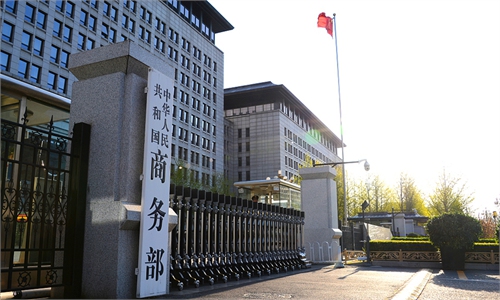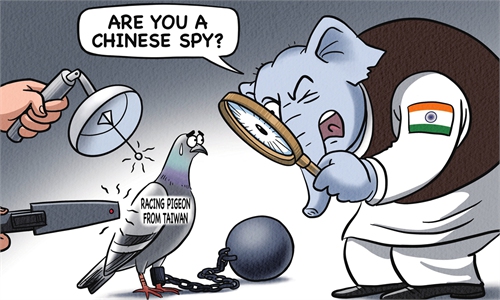
Illustration: Chen Xia/Global Times
Chinese companies in India have reportedly agreed, under pressure from the Indian government, to outsource their manufacturing processes to Indian companies, a move that local media outlets hailed as a "big victory" for local players. However, it is likened to an "arranged marriage," and it may disrupt normal cooperation in business and trade if normal business decisions are subject to the government intervention.After resisting pressure to open up their supply chain and production work to Indian companies, Chinese firms have finally decided to give business to local makers, India's TNN reported on Tuesday, citing official sources. The companies will outsource crucial manufacturing processes and know-how to select Indian companies, the report said.
This reported move by the Indian side didn't come as a surprise, given the country's accustomed moves to crack down on Chinese companies out of political motivations, since the border conflict in 2020. From banning Chinese apps to tax probes, as well as interfering in the appointment of senior executives of Chinese companies, India's intensified scrutiny of Chinese companies has been hysterical.
The Indian side does not need to act so bluntly in forcing Chinese companies to open up their supply chains. Before the reported intervention by the Indian government, Chinese companies had already outsourced some of their production to local Indian companies based on normal market activities.
Considering the stepped-up efforts by Chinese smartphone makers to carry out localized production with Indian partners, we believe that both Chinese and Indian companies have a strong willingness to cooperate on the basis of equality and mutual benefit. However, such "cooperation" should be generated through voluntary market activities rather than by government pressure - or even coercion. The Indian government should create a good atmosphere for cooperation between Chinese and Indian companies, rather than forcing them to "marry."
It is understandable that the Indian government may want to strengthen India's manufacturing sector by incentivizing domestic and foreign investments through programs such as the production-linked incentive, but if the country follows the wrong approaches - trying to abuse state power, coercing foreign companies and forcing them to open up their supply chains - this can be likened to an "arranged marriage" that will eventually backfire.
The intervention of the Indian government may pose concerns for supply chain disruption that may lead to breakdowns of production and also affect product quality. The move will further dampen the shattered confidence of foreign investors operating in India. Local consumers may also bear the brunt of the potential impact on the quality and efficiency of production lines as a result.
Chinese phone companies have gained strong popularity among Indian consumers for their value-for-money products. According to data from Canalys, Vivo had a market share of 18 percent in India in 2023, just one percent behind Samsung at the top. Xiaomi had a market share of 17 percent, followed by Realme at 12 percent and Oppo at 11 percent.
These companies have made contributions to the economic and social development of India by creating jobs, implementing social responsibilities and advancing India's supply chain. Xiaomi, for example, has created more than 50,000 jobs in India.
The deteriorating market situation for Chinese companies in India has raised great concern. Due to India's restrictive policies, regular financial inspections, fines and non-issuance of visas, the business of Chinese-funded enterprises in India has declined overall and their scale has gradually fallen.
Before 2020, there were more than 1,000 Chinese-funded companies in India, and at the peak, tens of thousands of people came to India. Currently, there are no more than 300 Chinese-funded enterprises in India, with fewer than 800 employees in India, data from industry insiders showed.
The recent action taken by India, if verified, poses a threat to Chinese companies as it could potentially lead to the transfer of their supply chains and technology to competing industry players.
Despite the Indian government's intensified crackdown, Chinese companies are trying to hold onto this market and they still have expectations for it. However, Indian authorities should not take this for granted.
If the Indian side believes that this scenario would showcase their political influence in coercing Chinese companies to yield, they are edging closer to alienating foreign investors.
The author is a reporter with the Global Times. bizopinion@globaltimes.com.cn



